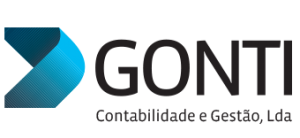News Accounting for 2016
Five years after the entry into force of the Accounting Standardisation System, which will be remembered as an important milestone in the history of accounting, behold, there are new changes in accounting standards to take effect in 2016.
These changes result from the transposition into national law of Directive 2013/34 / EU, with the publication this year of Decree-Law No. 98/2015.
Basically, what Parliament and the European Council is intended to simplify, reduce bureaucracy and spoken as local costs.
A Europe down with the arrival of the global market for large “players” economic and fierce competition, the European directives will increasingly towards economic liberalization and administrative and bureaucratic simplification, especially for small and medium enterprises. Ie the tone from the European Union is to deepen the simplification.
One major change is related to the new limits for the classification of entities / companies:
Micro-entities
Total Balance 350,000 euros
Volume of liquid 700,000 euros
Average number of employees 10
Small Entities
Total Balance 4,000,000 euros
Volume of 8,000,000 euros net business
Average number of employees 50
This amendment include many more companies in the concept of small entities that now covers virtually the entire Portuguese business, leaving out only the big companies. It also introduced the concept of medium body and great authority.
One of the emblematic changes is the management of a reporting exemption for micro-entities have been changed in this regard, the Code of Commercial Companies. The added value of the management report on a company classified as a micro entity is low since there are virtually no foreign investors in such companies and other users of financial information, tax administration and financial institutions, have other tools at their disposal to analyze the economic and financial situation of these companies.
Perpetual inventory system
In terms of companies or entities classified as “small entities” is no longer required disclosures that are now included in the Annex.
In 2010, with the entry into force of the CNS, one of the most talked about measures was not presented in the balance sheet of the capital subscribed but not paid, that is, the registered capital, but not yet paid by the partners and shareholders. Despite the users of financial information, namely, public entities and financial institutions could have access to balance sheets, this standard the ratios of financial autonomy reduced substantially in those companies where there deferral in the share capital.
From 2016 goes again to present the balance sheet, the side of the right to an active and, in equity subscribed capital, but not yet realized.
Interestingly, we analyze what says the policy, according to which the subscribed capital must be submitted, unless national law provides for called-up capital required under this heading, in which case the amounts of subscribed capital and paid-up capital be shown separately . Not mandatory, the national legislature, in transposing the directive, opted not require separate presentation.
Another change that we highlight is the possibility of amortization of intangible assets with indefinite useful lives in line with what had already been done in Corporate Income Tax with the reform of 2014. The goodwill also now can (or should) be amortized over a period 10 years if their useful life can not be measured reliably.
Also another interesting change is the separate presentation of goodwill on investments accounted for under the equity method, added more “truth” to the financial statements.
In this summary, we leave the last analysis of the new measure of an accounting nature which, unusually, does not promote the reduction of administrative costs and simplification: the requirement of the companies pass the perpetual inventory system available, except PC.
That is to do justice to the popular saying, “giving with one hand and take away with the other.” The perpetual inventory system requirement carries a significant increase in costs, the implementation of complex management systems, and we anticipate the increase in litigation with the tax authorities. For companies that outsource accounting services, closer to complex problems to solve, given that in order to meet the demand for perpetual inventory system should have integrated software between the company and the accounting office.
It remains for us, wait quietly that the legislature review this requirement as it comes not reduce costs or simplify, after all the purpose of the policy.
News source : Jornal de Negócios


